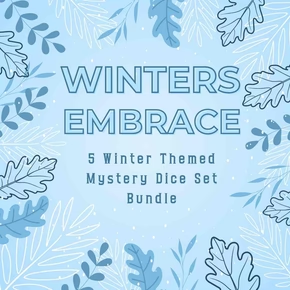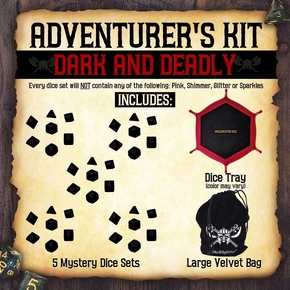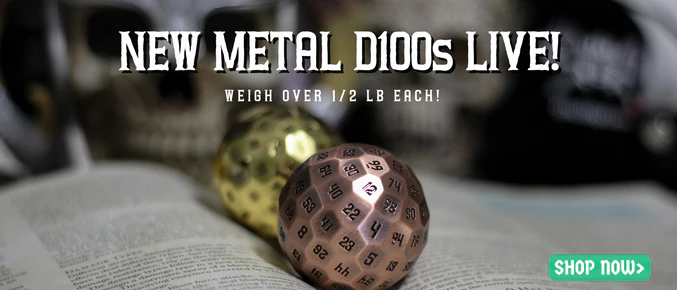
Point Buy 5e
Build Your Character with The Power Of MATH
So, you’ve got your character sheet and you’re all ready to go, then your DM casually mentions that you’ll be making your characters using point buy. What is point buy in 5e? How does point buy work in 5e? Gasp! Is math involved? No worries! 5e made this whole process super easy and we’ll teach you how to point buy in no time. Just grab your character sheets and a couple #2 pencils as we go through everything you need to know.
Table of Contents:
What is Point Buy in 5e?
When your DM tells you to use “Point Buy” when making your characters, he’s telling you to use the “Point Buy” method for determining your character’s ability scores. Point buy gives you complete control over your character’s stats, but it takes a bit longer than the “Standard Array” method and removes the potentially really high or low scores of the random “rolling” methods.

5e Point Buy Rules
Before we get into it, let’s go over the point buy rules as we find them in the player’s handbook, then we can go in-depth on what it all means.
Variant: Customizing Ability Scores
At your Dungeon Master’s option, you can use this variant for determining your ability scores. The method described here allows you to build a character with a set of ability scores you choose individually.
You have 27 points to spend on your ability scores. The cost of each score is shown on the Ability Score Point Cost table. For example, a score of 14 costs 7 points. Using this method, 15 is the highest ability score you can end up with, before applying racial increases. You can’t have a score lower than 8.
This method of determining ability scores enables you to create a set of three high numbers and three low ones (15, 15, 15, 8, 8, 8), a set of numbers that are above average and nearly equal (13, 13, 13, 12, 12, 12), or any set of numbers between those extremes.
Ability Score Point Cost
|
Score |
Cost |
|
8 |
0 |
|
9 |
1 |
|
10 |
2 |
|
11 |
3 |
|
12 |
4 |
|
13 |
5 |
|
14 |
7 |
|
15 |
9 |
How Does Point Buy Work?
Basically, all 6 of your ability scores start at 8, and you have 27 points to add to those scores however you’d like up to a maximum of 15.
Where it gets wonky is the top end of the scale, where it costs 2 points instead of 1 to go up to scores of 14 and 15.
Remember that it’s only the ability score modifiers that really matter. I feel like a lot of newer players have trouble figuring out what to do with that Ability Score Point Cost table because it leaves off the actual important part, which is what modifiers you’re buying for your points.
Here’s the table with the modifiers you’ll be getting from them, which should hopefully make your life easier.
Ability Score Point Cost + Ability Modifiers
|
Score |
Cost |
Modifier |
|
8 |
0 |
-1 |
|
9 |
1 |
-1 |
|
10 |
2 |
+0 |
|
11 |
3 |
+0 |
|
12 |
4 |
+1 |
|
13 |
5 |
+1 |
|
14 |
7 |
+2 |
|
15 |
9 |
+2 |
What About My Ability Score Increases from My Race?
Technically you’re supposed to select your race and then figure out your ability scores, but your ability points gained from your race get added in afterwards. This means that you can really plan around those racial ability score bonuses when you’re adding up your ability scores.
Can’t I Just Use a Point Buy Calculator?
You totally can! There’s a million handy calculators that allow you to just punch in the numbers without any work. My personal favorite is this one from “chicken dinner”. It comes preset with most of the 5e races and has all the point buy calculations worked out for you.
How to Optimize Using Point Buy
Just to be clear, you can build your character however you’d like and still function rather well in 5e. Gnome barbarians and half-orc wizards aren’t “optimal”, but they’ll still work just fine. If you’re trying to get the most out of your points though, you’ll need to take into account the ability score increases of your race, and what ability scores you’ll want for your class.
Most races gain +2 in one ability score, and +1 in another. Since you can buy ability scores up to 15, this means you can get two 16’s (and thus, a +3 modifier) in two of your ability scores.
Let’s walk through the steps you’d take getting “optimized scores” with an example character:
Step 1: Identify Your Core Build
Technically, you shouldn’t be choosing your class before picking out your ability scores, but everybody does. By figuring out your class now, you know what ability scores you’ll want high, and which ones you don’t need to worry about. If you’re having trouble figuring that out, check your chosen class’s “quick build” section, which should tell you which scores you’ll need.
Then, by picking a race that has bonuses to one or both scores you need high, you’ll end up with a more optimized build.
Let’s say I want to play a barbarian, taking a look at the “quick build” section of barbarian, I find that I’ll want a high Strength score and a high Constitution score.
Half-orcs conveniently grant a +2 bonus to Strength, and a +1 bonus to Constitution, so I’ll choose half-orc as my race.
Step 2: Optimize your Core Stats
So, knowing that I’ll be getting those bonuses as a half-orc, I can buy my ability scores accordingly so that I end up with a 16 in both Strength and Constitution.
Since I know I’ll get that +2 in Strength, I know I only need to pay points up to an ability score of 14 and checking the table I see that this costs me 7 points.
Since I know I’ll get that +1 in Constitution, I know that by buying all the way up to the maximum of 15, I’ll end up with a 16 and that sweet +3 modifier, at the cost of 9 points.
Step 3: Optimize your Remaining Points
With 16 of your 27 points spent, you’ve got 4 more ability scores to figure out and 11 points to spend on them.
You’ve got a couple configurations to choose from.
13,10,10,10
This is what you pick if you just simply don’t want a negative in anything. It’s not bad but It’s sort of the safety play instead of making the best use of your points.
13,12,10,8
This gets you two +1 stats, a neutral stat, and a single dump stat. I really like this configuration as you end up with 4 overall stats with bonuses, a neutral stat and one dump stat.
14,10,10,8
This gets you a solid +2 stat, two neutral stats, and a single dump stat. This is usually the best option for classes that are stretched between three stats, like many Rangers, Paladins, Monks, and melee Warlocks.
What If My Race Has Non-Standard Stats?
Every official race has at least a +2 in a single stat or two +1s in two stats. This means you’ll still be able to reach two +3 ability score modifiers, but it may shake up the optimization of your remaining ability scores. Try to round your remaining scores to even numbers as much as possible!
What About Those Other Ability Score Methods?
Most DMs will have their own special rules about it, but there are two other “normal” methods of determining each character’s ability scores, Rolling, and Standard Array:
Rolling for Stats
This is the one that DMs tend to play around with the most, so absolutely triple check with your DM if they have any house rules regarding rolling for stats. Otherwise, the following is the direct rule from the book:
You generate your character’s six ability scores randomly. Roll four 6-sided dice and record the total of the highest three dice on a piece of scratch paper. Do this five more times, so that you have six numbers.
Figure out what ability scores your class needs (again, check the “quick build” section for your class) and place your highest die results into those abilities. Other than that you’re really at the mercy of the dice, pray you roll well!
Standard Array
The standard array is just like the sets of numbers you were creating using point buy, it’s just these are already picked for you. Instead of buying each stat, you simply slot each number into your choice of ability scores. Here’s the rules for standard arrays as they are in the player’s handbook:
If you want to save time or don’t like the idea of randomly determining ability scores, you can use the following scores instead: 15, 14, 13, 12, 10, 8.
This is actually one of the ideal set configurations we already analyzed from point buy! It’s very versatile, just make sure you line the 15 and 14 up with your +1 and +2 from your race so that you end up with a pair of 16s and their +3 modifiers.
--
Enjoy this Guide? You May Also Like:
Need a New Dice Set? Check out our Dice here. They are perfect for every gamer as a gift or just treating yourself!
Thinking about other classes? Check out our giant list of D&D 5e Tools and Tips here.
New to find a D&D Group? Check out our guide on How to Find a D&D Group.
Want to play an owl like creature? Check out the owlin in our Ownlin 5e Guide!

Disclaimer
Last updated: January 27, 2019
The information contained on www.SkullSplitterDice.com website (the "Service") is for general information purposes only.
www.SkullSplitterDice.com is a participant in the Amazon Services LLC Associates Program, an affiliate advertising program designed to provide a means for sites to earn advertising fees by advertising and linking to Amazon.com. (source: Section 5)
Blueshift Nine, LLC assumes no responsibility for errors or omissions in the contents on the Service.
In no event shall Blueshift Nine, LLC be liable for any special, direct, indirect, consequential, or incidental damages or any damages whatsoever, whether in an action of contract, negligence or other tort, arising out of or in connection with the use of the Service or the contents of the Service. Blueshift Nine, LLC reserves the right to make additions, deletions, or modification to the contents on the Service at any time without prior notice.
Blueshift Nine, LLC does not warrant that the Service is free of viruses or other harmful components.
Affiliate disclaimer
This affiliate disclosure details the affiliate relationships of Blueshift Nine, LLC with other companies and products.
Some of the links are "affiliate links", a link with a special tracking code. This means if you click on an affiliate link and purchase the item, we will receive an affiliate commission.
The price of the item is the same whether it is an affiliate link or not. Regardless, we only recommend products or services we believe will add value to our readers.
By using the affiliate links, you are helping support the Service, and we genuinely appreciate your support.
Affiliate advertising programs that the Service uses are:
- Amazon Services LLC Associates Program
- As an Amazon Associate, I earn from qualifying purchases.
- Blueshift Nine, LLC is a participant in the Amazon Services LLC Associates Program, an affiliate advertising program designed to provide a means for sites to earn advertising fees by advertising and linking to Amazon.com or endless.com, MYHABIT.com, SmallParts.com, or AmazonWireless.com.
- Pages on this Service may include affiliate links to Amazon and its affiliate sites on which the owner of this Service, Blueshift Nine, LLC, will make a referral commission.


